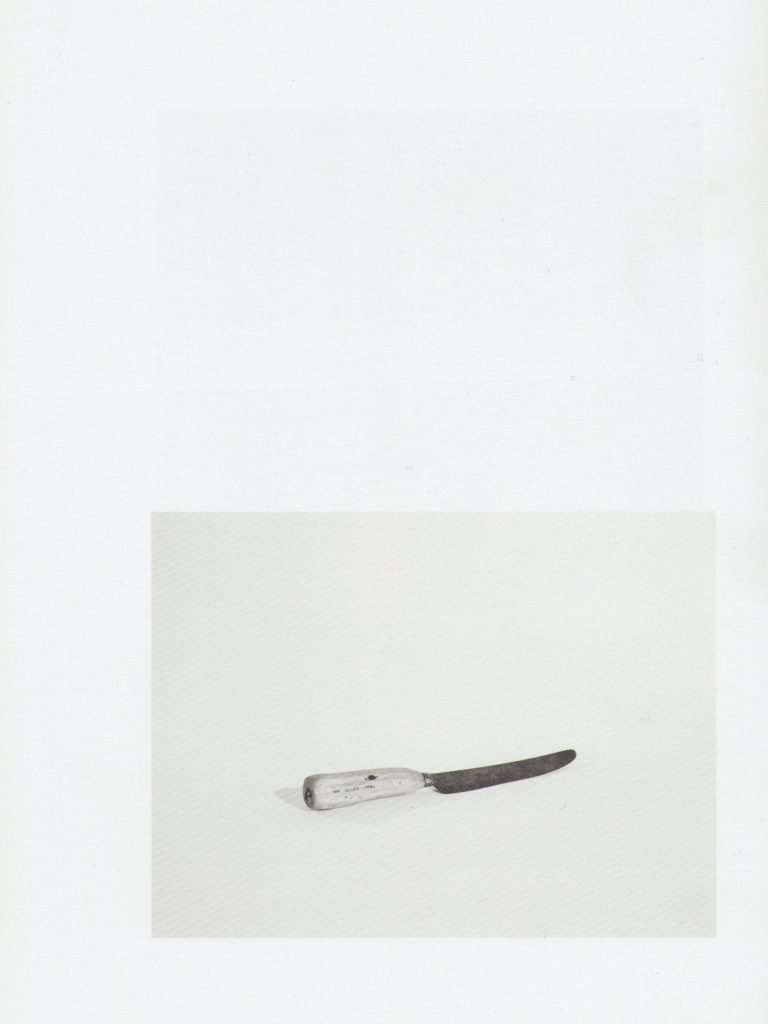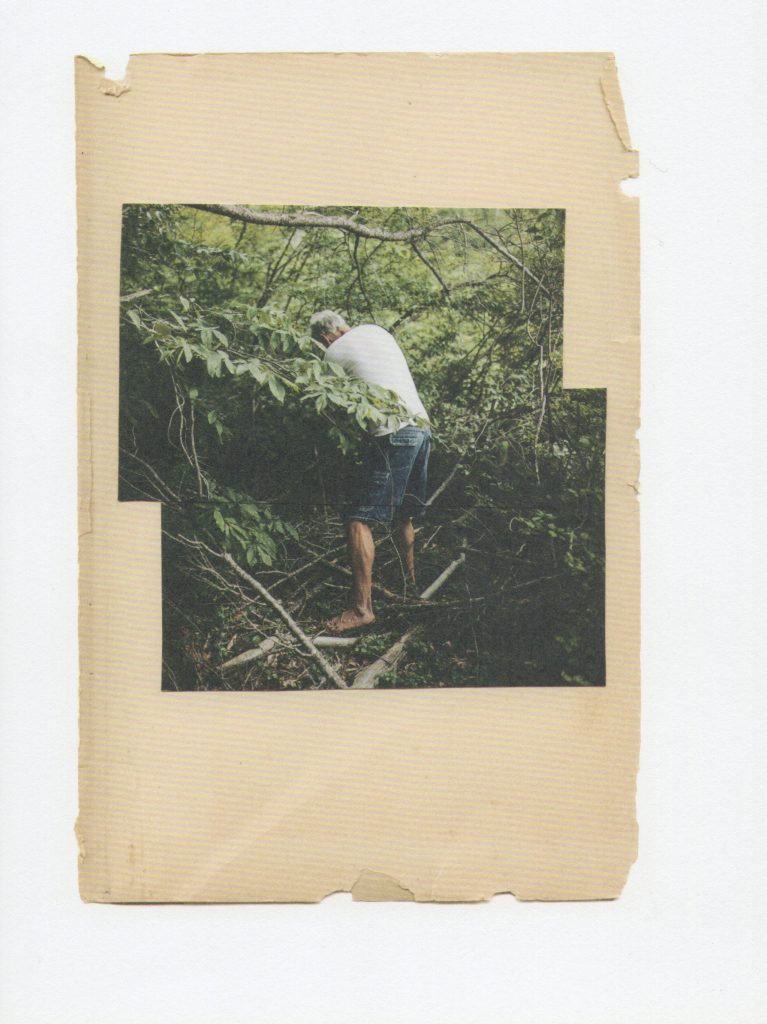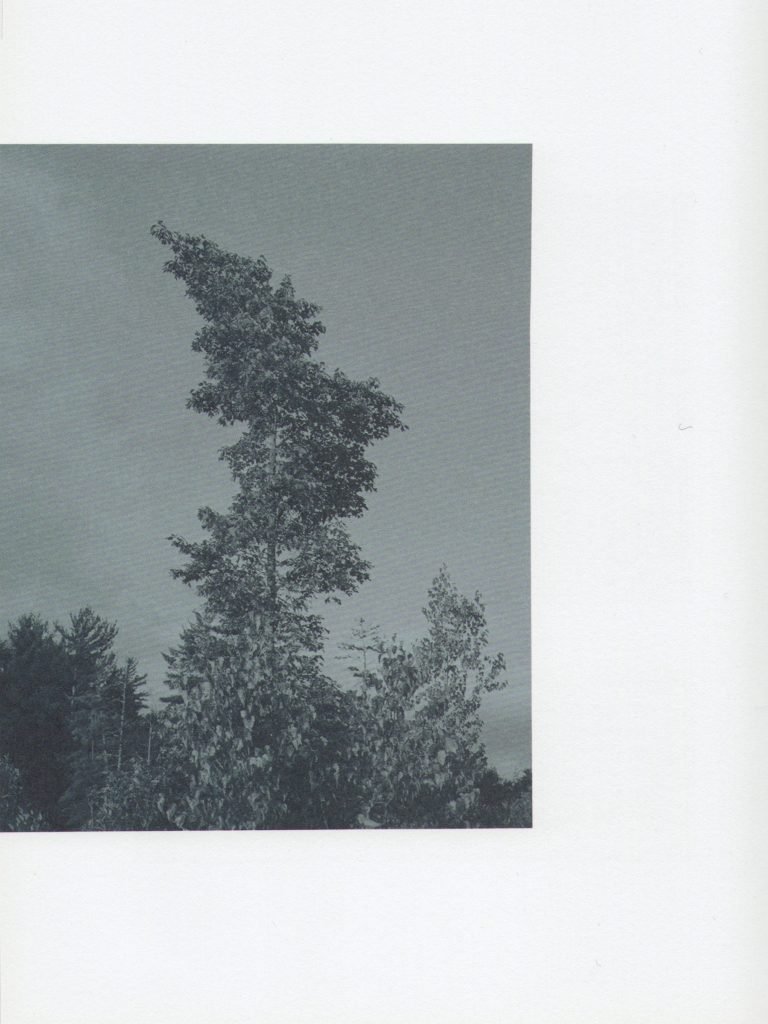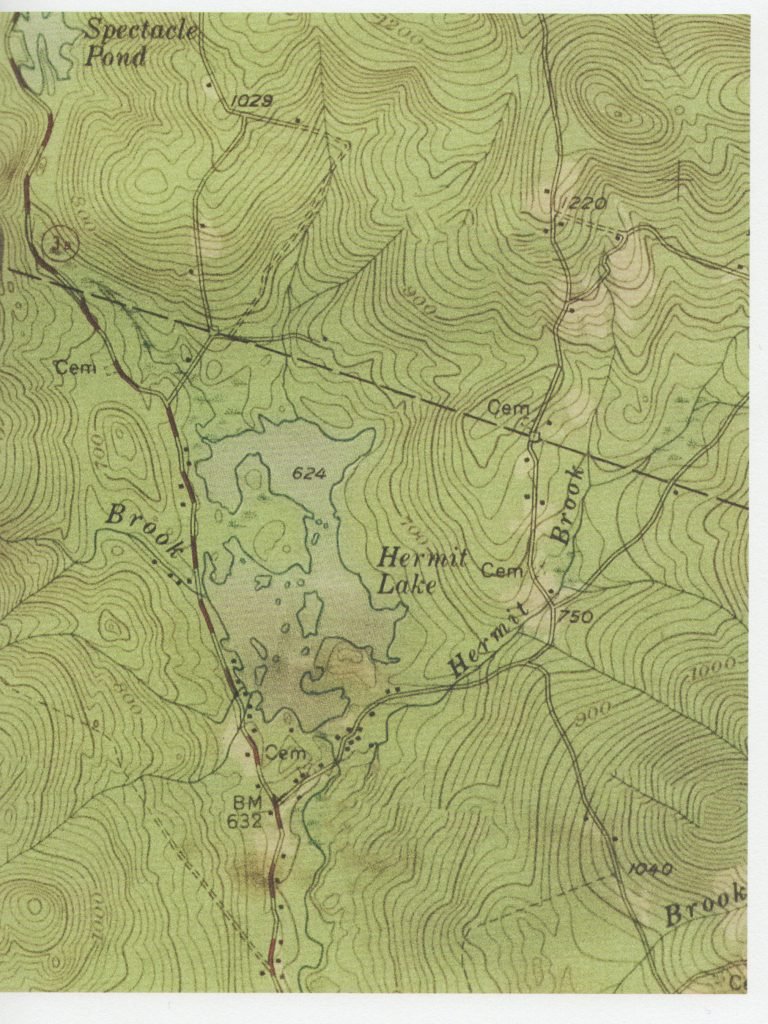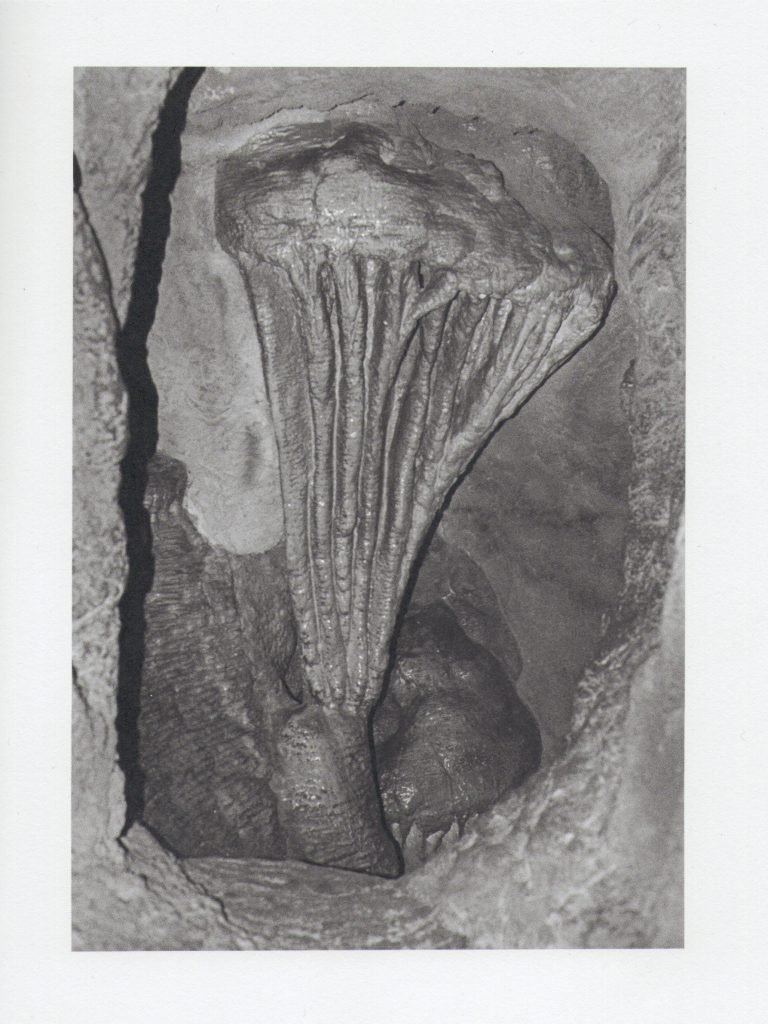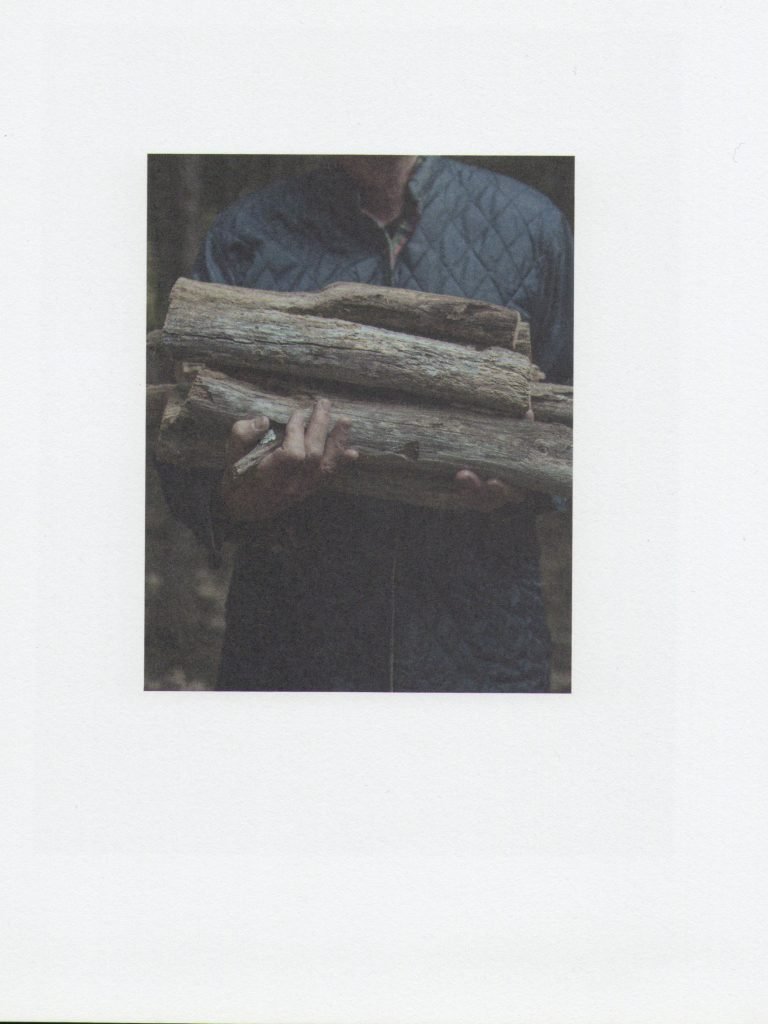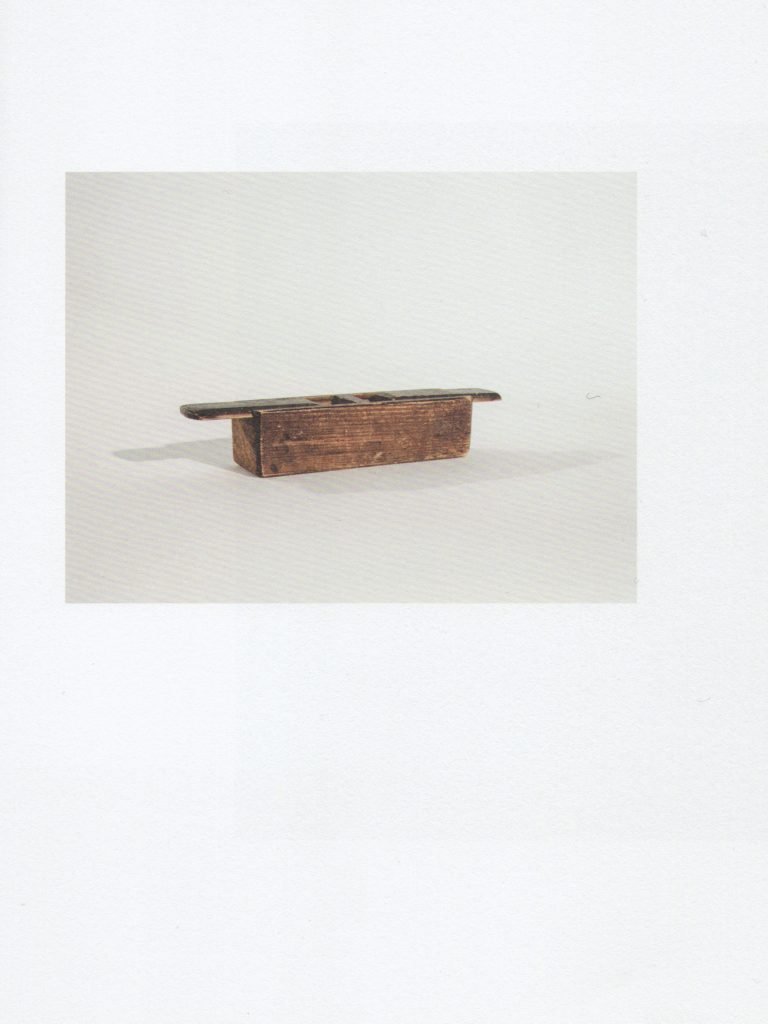American photographer Amani Willett reconstructs through a book the story of Joseph Plummer, a hermit who lived in the forests of New Hampshire at the end of the eighteenth century. Two centuries later, the same lands where Plummer lived were bought by the father of the photographer who didn’t know the story but in turn wanted to build a small hut to escape the rhythms of everyday life and take refuge in their own solitude.
Willett, intrigued by the figure of Plummer and the overlapping of stories and needs, began to investigate: from the few and uncertain news that he could find on some articles in local newspapers and personal notes Willett discovered that the man was born at the end of the eighteenth century in a small town in New Hampshire. He had ten or eleven brothers and came from a poor family. When he turned twenty he made the radical choice to leave the family and move to the woods surrounding his country where he managed to live in solitude until he was found dead in the shelter he had built (approximately 1860).
Alternating archival images that reconstruct and outline the story of Plummer and the places where he lived to images of his father and his life in that same place, Willett has built a visual story in which images of personal objects, historical documents, evocative momentos of the life of the father, elaborations of these same memories and moments, are arranged by a wise and suggestive direction in order to sketch a story that finds in the same American literary tradition curious echoes, by Henry Thoreau who in 1845, at the age of twenty-eight, left his hometown and goes to live on the shores of Lake Walden, in a hut built by himself, and he stays there for more than two years wishing “to march to the sound of a different drum” and seeks freedom by immersing himself in the rhythms of nature far from civilization (“Walden” is the autobiographical account of this experiment of solitary life, the daily chronicle of a return to simplicity, a declaration of independence from the moral weakness of a society dedicated to the accumulation of wealth), to Theodore John “Ted” Kaczynski, also known as Unabomber who in 1971 moved to a hut in Lincoln, Montana, where he lived in an essential way with little money, without electricity and running water, feeding himself by hunting and mailing the his bombs that he justified in a manifesto, (Industrial Society and his Future), as an attempt to fight against what he considered the dangers of technological progress.
In January 1995 Milt Jones, an English student at Brgham Young University who worked with Professor Dallin D. Oaks, noted that the 1907 novel by Joseph Conrad “The secret agent” reported a history of attacks on professors. After the arrest of Kaczynski it was discovered that, like the character of the book called The Professor, Kaczynski had abandoned his life as a professor to live in nature. Investigators then learned that Kaczynski had grown up with a copy of this book in his house, and admitted during interrogation that he had read it more than a dozen times. He had also used the pseudonyms “Conrad” or “Konrad” during his travels to send the bomb packs.
Amani Willett reveals something profound, his book shows the images of a retraced path that sees in the search for a reconciliation with nature a way of salvation. Leafing through The Disappearance of Joseph Plummer we come across a reactivation and formalization of an inescapable primitivism because it is rooted in the depths of each individual.
“I went to the woods because I wished to live deliberately, to front only the essential facts of life, and see if I could not learn what it had to teach, and not, when I came to die, discover that I had not lived. I did not wish to live what was not life, living is so dear; nor did I wish to practise resignation, unless it was quite necessary. I wanted to live deep and suck out all the marrow of life, to live so sturdily and Spartan-like as to put to rout all that was not life, to cut a broad swath and shave close, to drive life into a corner, and reduce it to its lowest terms…” (Henry David Thoreau / Walden, or life in the woods)





